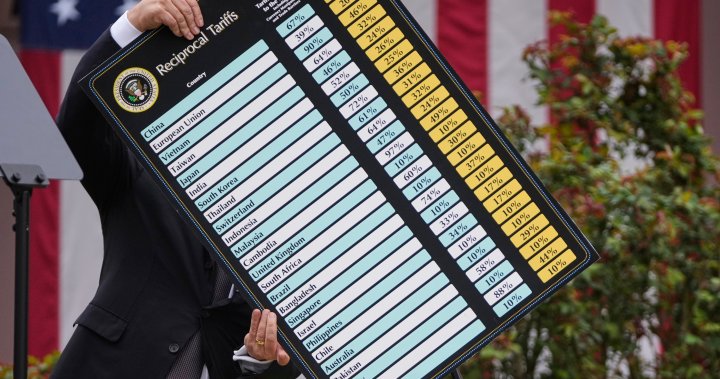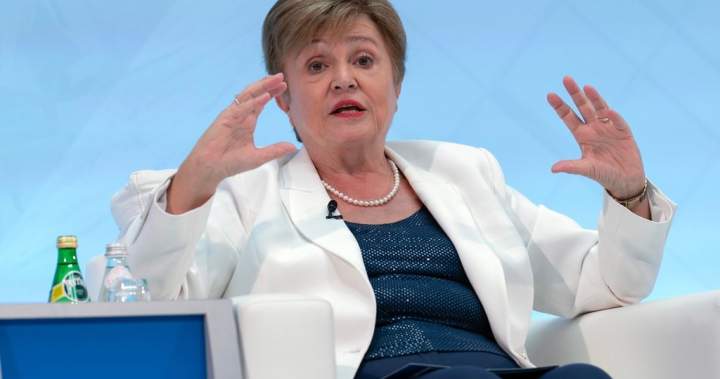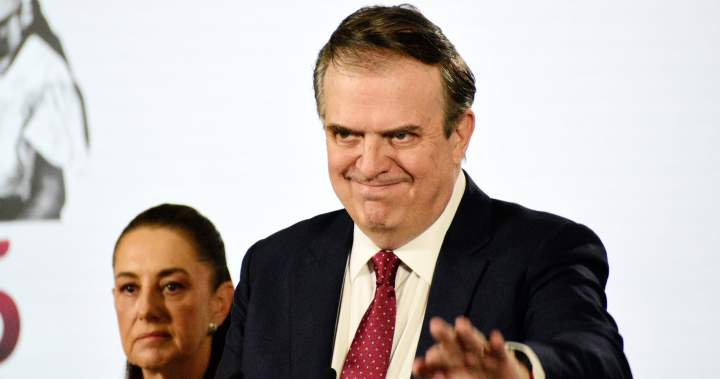Politics
Trump’s reciprocal tariffs, from highest to lowest so far – National TenX News

U.S. President Donald Trump announced the range of reciprocal tariffs he is imposing against nearly 200 global trading partners, saying the U.S. has been “looted” and “pillaged” by other nations and needs to respond.
The list of countries and territories, laid out across eight pages of documents, includes a baseline 10 per cent tariff on the countries but imposes higher duties on many other countries.
Canada is not impacted — yet — but does continue to face existing tariffs as well as previously threatened auto tariffs that kick in on Thursday.
The chart shows the U.S. will charge a 34 per cent tax on imports from China, 20 per cent on European Union products and 25 per cent on South Korea.
Here’s a list of all the countries and overseas territories listed by the White House as facing “reciprocal” tariffs by the U.S. and the amount they will be hit with in duties from highest to lowest:
- Lesotho – 50 per cent
- Saint Pierre and Miquelon (French overseas territory) – 50 per cent
- Cambodia – 49 per cent
- Laos – 48 per cent
- Madagascar – 47 per cent
- Vietnam – 46 per cent
- Sri Lanka – 44 per cent
- Myanmar (Burma) – 44 per cent
- Falkland Islands – 41 per cent
- Syria – 41 per cent
- Mauritius – 40 per cent
- Iraq – 39 per cent
- Guyana – 38 per cent
- Liechtenstein – 37 per cent
- Reunion (French overseas territory) – 37 per cent
- Bangladesh – 37 per cent
- Serbia – 37 per cent
- Botswana – 37 per cent
- Thailand – 36 per cent
- Bosnia and Herzegovina – 35 per cent
- China – 34 per cent
- North Macedonia – 33 per cent
- Taiwan – 32 per cent
- Indonesia – 32 per cent
- Angola – 32 per cent
- Fiji – 32 per cent
- Switzerland – 31 per cent
- Moldova – 31 per cent
- Libya – 31 per cent
- Algeria – 30 per cent
- Nauru – 30 per cent
- South Africa – 30 per cent
- Norfolk Island (Australian territory) – 29 per cent
- Pakistan – 29 per cent
- Tunisia – 28 per cent
- Kazakhstan – 27 per cent
- India – 26 per cent
- South Korea – 25 per cent
- Japan – 24 per cent
- Malaysia – 24 per cent
- Brunei – 24 per cent
- Vanuatu – 22 per cent
- Cote d’Ivoire – 21 per cent
- Namibia – 21 per cent
- Jordan – 20 per cent
- European Union – 20 per cent
- Nicaragua – 18 per cent
- Zimbabwe – 18 per cent
- Israel – 17 per cent
- Zambia – 17 per cent
- Philippines – 17 per cent
- Malawi – 17 per cent
- Mozambique – 16 per cent
- Norway – 15 per cent
- Venezuela – 15 per cent
- Nigeria – 14 per cent
- Equatorial Guinea – 13 per cent
- Chad – 13 per cent
- Democratic Republic of the Congo – 11 per cent
- Cameroon – 11 per cent
- United Kingdom – 10 per cent
- Brazil – 10 per cent
- Singapore – 10 per cent
- Chile – 10 per cent
- Australia – 10 per cent
- Turkiye – 10 per cent
- Colombia – 10 per cent
- Peru – 10 per cent
- Costa Rica – 10 per cent
- Dominican Republic – 10 per cent
- United Arab Emirates – 10 per cent
- New Zealand – 10 per cent
- Argentina – 10 per cent
- Ecuador – 10 per cent
- Guatemala – 10 per cent
- Honduras – 10 per cent
- Egypt – 10 per cent
- Saudi Arabia – 10 per cent
- El Salvador – 10 per cent
- Trinidad and Tobago – 10 per cent
- Morocco – 10 per cent
- Oman – 10 per cent
- Uruguay – 10 per cent
- Bahamas – 10 per cent
- Ukraine – 10 per cent
- Bahrain – 10 per cent
- Qatar – 10 per cent
- Iceland – 10 per cent
- Kenya – 10 per cent
- Haiti – 10 per cent
- Bolivia – 10 per cent
- Panama – 10 per cent
- Ethiopia – 10 per cent
- Ghana – 10 per cent
- Jamaica – 10 per cent
- Paraguay – 10 per cent
- Lebanon – 10 per cent
- Tanzania – 10 per cent
- Georgia – 10 per cent
- Senegal – 10 per cent
- Azerbaijan – 10 per cent
- Uganda – 10 per cent
- Albania – 10 per cent
- Armenia – 10 per cent
- Nepal – 10 per cent
- Sint Maarten (semi-autonomous country of the Netherlands) – 10 per cent
- Gabon – 10 per cent
- Kuwait – 10 per cent
- Togo – 10 per cent
- Suriname – 10 per cent
- Belize – 10 per cent
- Papua New Guinea – 10 per cent
- Liberia – 10 per cent
- British Virgin Islands (British overseas territories) – 10 per cent
- Afghanistan – 10 per cent
- Benin – 10 per cent
- Barbados – 10 per cent
- Monaco – 10 per cent
- Uzbekistan – 10 per cent
- Republic of the Congo – 10 per cent
- Djibouti – 10 per cent
- French Polynesia (French overseas territory) – 10 per cent
- Cayman Islands – 10 per cent
- Kosovo – 10 per cent
- Curacao – 10 per cent
- Rwanda – 10 per cent
- Sierra Leone – 10 per cent
- Mongolia – 10 per cent
- San Marino – 10 per cent
- Antigua and Barbuda – 10 per cent
- Bermuda – 10 per cent
- Eswatini (Swaziland) – 10 per cent
- Marshall Islands – 10 per cent
- Saint Kitts and Nevis – 10 per cent
- Turkmenistan – 10 per cent
- Grenada – 10 per cent
- Sudan – 10 per cent
- Turks and Caicos Islands – 10 per cent
- Aruba – 10 per cent
- Montenegro – 10 per cent
- Saint Helena (overseas British territory) – 10 per cent
- Kyrgyzstan – 10 per cent
- Yemen – 10 per cent
- Saint Vincent and the Grenadines – 10 per cent
- Niger – 10 per cent
- Saint Lucia – 10 per cent
- Iran – 10 per cent
- Samoa – 10 per cent
- Guinea – 10 per cent
- Timor-Leste – 10 per cent
- Montserrat (British overseas territory) – 10 per cent
- Mali – 10 per cent
- Maldives – 10 per cent
- Tajikistan – 10 per cent
- Cabo Verde – 10 per cent
- Burundi – 10 per cent
- Guadeloupe – 10 per cent
- Bhutan – 10 per cent
- Martinique – 10 per cent
- Tonga – 10 per cent
- Mauritania – 10 per cent
- Dominica – 10 per cent
- Micronesia – 10 per cent
- Gambia – 10 per cent
- French Guiana (French overseas territory) – 10 per cent
- Christmas Island (Australian territory) – 10 per cent
- Andorra – 10 per cent
- Central African Republic – 10 per cent
- Solomon Islands – 10 per cent
- Mayotte (French overseas territory) – 10 per cent
- Anguilla (British overseas territory) – 10 per cent
- Cocos (Keeling) Islands (Australian territory) – 10 per cent
- Eritrea – 10 per cent
- Cook Islands – 10 per cent
- South Sudan – 10 per cent
- Comoros – 10 per cent
- Kiribati – 10 per cent
- Sao Tome and Principe – 10 per cent
- Gibraltar (British overseas territory) – 10 per cent
- Tuvalu – 10 per cent
- British Indian Ocean Territory – 10 per cent
- Tokelau (New Zealand territory) – 10 per cent
- Guinea-Bissau – 10 per cent
- Svalbard and Jan Mayen (Norwegian territory)- 10 per cent
- Heard Island and McDonald Islands (Australian territory) – 10 per cent
- Elon Musk, Ashley St. Clair spar publicly over alleged child support
- Beer cans, empty cans added to U.S. 25% aluminum tariff product list
- Asteroid YR4 won’t hit Earth, but scientists can’t rule out a moon hit
- Israel to establish new security corridor across Gaza, seize territory
Politics
IMF chief backs Jerome Powell, U.S. Fed independence amid Trump pressure – National TenX News

International Monetary Fund chief Kristalina Georgieva on Thursday underscored the importance of keeping central banks independent and threw her support behind beleaguered Federal Reserve Chair Jerome Powell, who is facing a Trump administration investigation for renovation cost overruns.
Georgieva told Reuters in an interview that there was ample evidence that central bank independence worked in the interest of businesses and households, and that evidence-based, data-based decision-making is good for the economy.
The IMF managing director said she had worked with Powell and respected his professionalism.
“I have worked with Jay Powell. He is a very good professional, very decent man, and I think that his standing among his colleagues tells the story,” she said, when asked about a letter of support signed by her predecessor, Christine Lagarde, now head of the European Central Bank, and other large central banks.
Powell on Sunday disclosed that the Trump administration had opened an investigation into him over cost overruns for a $2.5 billion project to renovate two historical buildings at the Fed’s Washington headquarters complex.

Get daily National news
Get the day’s top news, political, economic, and current affairs headlines, delivered to your inbox once a day.
Powell denies wrongdoing and has called the unprecedented actions a pretext to put pressure on him for not bowing to U.S. President Donald Trump’s long-running demands for sharply lower interest rates.

The probe has sparked widespread criticism from some key members of Trump’s Republican Party in the U.S. Senate, which must confirm his nominee to succeed Powell, along with foreign economic officials, investors and former U.S. government officials from both political parties.
Trump has repeatedly derided Powell’s leadership of the Fed and attacked him, often personally, over what he sees as the Fed chair’s slow moves to cut interest rates. On Wednesday, he dismissed concerns that eroding central bank independence would undermine the value of the U.S. dollar and spark inflation, telling Reuters, “I don’t care.”
Georgieva said the IMF looked carefully at issues such as monetary and financial stability, as well as the strength of a country’s institutions. It was specifically interested in the Fed, given the role of the U.S. dollar as a reserve currency.
“It would be very good to see that there is a recognition … that the Fed is precious for the Americans. It is very important for the rest of the world,” she said.
Trump has also attempted to fire another Fed official, Governor Lisa Cook, who has challenged her termination in a legal case that will be argued before the Supreme Court next week.
Politics
B.C. Premier David Eby says province’s LNG, mining of interest to India TenX News

B.C. Premier David Eby spoke to reporters on Thursday morning from Mumbai, India, during his six-day trade mission.
He said that mining and energy companies in India are showing an interest in B.C.
“They are looking strongly to LNG as one of their ways of reducing carbon intensity, as well as reducing smog in the country,” Eby said.
“And so B.C. LNG has been an item of considerable interest, especially the projects that are reaching final investment decision over the next year — LNG Canada Phase 2, KSI Lisims LNG — as well as the projects that are under construction like Woodfibre LNG.”

Eby was also asked about the rise in extortion cases in B.C.
He said the province’s extortion task force will provide an update next week.

Get breaking National news
For news impacting Canada and around the world, sign up for breaking news alerts delivered directly to you when they happen.
“We have assembled a remarkable and historic task force, RCMP, CBSA,” Eby said.
“There are more police in Surrey right now than there have ever been. The RCMP has surged resources into the community.”
Eby said he has not been happy with the fact that there has been no update from the task force and he has asked them to provide one.
“There have been some important developments, people deported, an arrest here in India, cooperation between the Indian government and the Canadian government on this at the law enforcement level,” he added.
“That needs to continue, but, bluntly, we need better results, we need to see more arrests and whatever we can do to support the police to get the job done, we will do so.”
As of Jan. 12, Surrey police said there have been 16 reported extortion incidents in the city since the beginning of the year.
© 2026 Global News, a division of Corus Entertainment Inc.
Politics
Mexico confident CUSMA will remain as Trump suggests it could expire – National TenX News

Amid persistent doubts over the future of the Canada-United States-Mexico trade agreement (CUSMA), Mexico’s Economy Minister Marcelo Ebrard insisted on Thursday that the agreement remains firmly intact and that the three countries will close a deal to extend it.
“We’re already in the treaty review phase, and we have to finish by July 1; that’s our deadline,” Ebrard said during Mexican President Claudia Sheinbaum’s daily morning press conference.
“We have made good progress on all the points that concern each of the parties.”
Ebrard’s comments were his first on the topic since U.S. President Donald Trump again cast doubt on the treaty’s future earlier this week.
“There’s no real advantage to it, it’s irrelevant,” Trump said on Tuesday, as he toured a Ford factory in Dearborn, Michigan.
The trilateral trade agreement, known as USMCA, replaced the North American Free Trade Agreement in 2020 and is a backbone of Mexico’s economy.
The treaty, which was negotiated during Trump’s first term, requires the three countries to hold a joint review this year to extend the pact.

Get breaking National news
For news impacting Canada and around the world, sign up for breaking news alerts delivered directly to you when they happen.
If extended, the treaty will remain in place another 16 years. If not, it is subject to annual reviews.

Technically, July 1 is a key date in the treaty’s review process, but many analysts expect negotiations to extend late into 2026 and said Trump will likely avoid extending the treaty before the U.S. midterm elections in November.
Trump’s recent threats to pursue military action against cartels have also added a new layer of uncertainty to U.S.-Mexico relations.
“I think Ebrard is betting on a best-case scenario, but the window for a July successful review is closing fast,” said Alexia Bautista, a former Mexican diplomat and lead Mexico analyst at the political risk consultancy firm Horizon Engage.
“Given recent events and statements, the risk is that Trump injects security into the process, turning the trade review into a far more political negotiation.”
Pedro Casas, chief executive of the American Chamber of Commerce of Mexico, said he expects the U.S. will continue imposing tariffs on a wide spectrum of Mexican exports, regardless of the treaty’s future.
The Trump administration has imposed sweeping 50 per cent duties on steel and aluminum exports to the U.S., along with a 25 per cent tariff on cars shipped from Mexico, even when those vehicles comply with the terms of the trade deal.
“I think the most likely scenario is a positive review process where we agree to extend the treaty for another 16 years, but steep tariffs still remain on Mexican exports that undermine the strength of the agreement,” Casas said.
-

 Fashion10 months ago
Fashion10 months agoThese ’90s fashion trends are making a comeback in 2017
-

 Entertainment10 months ago
Entertainment10 months agoThe final 6 ‘Game of Thrones’ episodes might feel like a full season
-

 TenX Exclusive10 months ago
TenX Exclusive10 months agoअमर योद्धा: राइफलमैन जसवंत सिंह रावत की वीरगाथा
-

 Politics8 months ago
Politics8 months agoBefore being named Pope Leo XIV, he was Cardinal Robert Prevost. Who is he? – National TenX News
-

 Politics9 months ago
Politics9 months agoPuerto Rico faces island-wide blackout, sparking anger from officials – National TenX News
-

 Fashion10 months ago
Fashion10 months agoAccording to Dior Couture, this taboo fashion accessory is back
-

 Tech10 months ago
Tech10 months agoIndian-AI-software-which-caught-30-thousand-criminals-and-busted-18-terrorist-modules-its-demand-is-increasing-in-foreign-countries-also – News18 हिंदी
-

 Politics9 months ago
Politics9 months agoScientists detect possible signs of life on another planet — but it’s not aliens – National TenX News
















